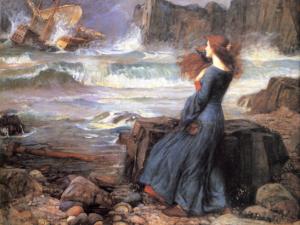Everyone has a calling. Mine has been to educate Socratically, best I could. My issues have been the big, general issues and if I have thought deeply about a few things, they were topics like Republic where my ideas are not needed in the vast ocean of thought on that nearly-greatest of all great books. I have, as one friend put it, specialized in general education.
As a result, when it comes to Christianity my public work and writing have been ecumenical. My favorite journal is Touchstone if you wish a taste of how this can work. The bulk of my teaching career has been at Evangelical institutions and I still see myself as evangelical: Bible loving, evangelistic, and apt to enthusiasm about the Good. Of course, I am not merely Evangelical, as many an investigatory committee has discovered. I am also Orthodox.
I am proudly an Orthodox layman, not merely, but whole heartedly. In a broken world, in broken me, this can produce tensions, but mostly it has been a joy. I learn from other Jesus followers and submit myself to the Church family as a spiritual son. The distinctions matter, but not usually.
One benefit of these times in the United States is that sensible theists (let alone Christians) have to stick together or be washed away in a flood of religious irrationalism and or parched by dry atheism. Yet the important differences are there, and this brings me to a question from my summertime interlocutor M*:
15. The Church came before the Bible did. Evangelical/Protestant Christians today accept that early church councils got things right about theology, etc. When should Christians believe the time occurred at which God stopped guiding these councils? Should it align with where the Eastern Orthodox say? Or the Roman Catholic Church? Or somewhere else? If so, where, and why?
Begin with the Scriptures.
Since the Church thinks the Hebrew Scriptures are part of the Bible the Church did not appear in history before the Scriptures. Of course, if you see the community of faith as stretching back to the Trinity, then the Church came into being with creation. I think, however, that this is not what M* means by “older.”
For a moment let’s assume most of my brilliant former colleagues at the Torrey Honors Institute are correct and Protestant Christianity is the right way. They begin with Jesus revealed to them in Scriptures and then known in relationship. They affirm many of the councils because they are convinced that the councils make plain the teachings of Scripture.
They are not, at all, inconsistent in doing so as the career of Professor Fred Sanders shows. He is well aware of Church history, knows the councils, but begins in Scripture. He affirms exactly those conciliar statements he believes are found in Scriptures. He is a Trinitarian because he is Biblical. The works of the Fathers and Mothers of the Church, which he studies carefully, are mines of wisdom for him, but not definitive.
The good news is that this careful scholarship brought Dr. Sanders to many of the same conclusions as the Orthodox or Catholics! God is there, Scripture is inspired, and so thoughtful Christianity is never so fragmented as critics pretend.
I thought about all of this and came to the conclusion that the Orthodox Church was the mainstream of the work of the Holy Spirit. As you know, the best way to know Orthodoxy is to live the life in a parish under the guidance of a spiritual father or mother. I love Orthodoxy and am convinced that the Orthodox Church is the Church.
The Church is not divided: it is one holy, Orthodox church.
What of Rome? What of the growing Pentecostal movement? What of Lutherans and traditional Anglicans, our closest cousins? What of the massive evangelical or charismatic movements that have swept through every branch of Christendom?
God knows.
I love my friends who are Catholic, Baptist, Presbyterian.
Each of us must look at where we started, where we first heard God, and see if we can stay with intellectual and spiritual integrity. If we can, out of gratitude for such splendid blessings we should do so. If we cannot, then we need less to leave critically, than to find something that preserves what is good, true, and beautiful and expands on it. We need greater truth.
This much I know: the God I met in the waters of baptism in West Virginia, in the prayer meetings in Elim Bible Institute, is the God that I meet as I kneel at the altar of Saint Paul Antiochian Orthodox Church. I am no longer merely a Christian, I have left older denominational affiliations and beliefs behind me, but I have not left the God, the wisdom, the mentoring, the truth behind me.
Obviously, you must look and see, but beware! That people who claim to be Christians are divided is discouraging. Jesus knew our hearts and asked God that we would not divide, knowing our tendency to mishear, misunderstand, squabble, and fail. That is sad, but then we are broken. God from this perspective guides all Christians who ask for wisdom and has never stopped.
Of course, Evangelicals and Orthodox Christians do not agree on everything, but the common ground (the nature of God, Jesus as the Son of God, fully God and fully man) is much. Read Touchstone.
The Church is not broken, but we are.
Broken people break things. If I am not careful, I will hurt people in just the ways I have been hurt. We need not, but we do. The Church was, is, and is coming: visible and invisible. We can join.
Do the best you can. Avoid the swamps where spirituality has stagnated and bred malaria of the soul, but also do not flee our personal brokenness only to die of dehydration in the dry and weary land of secularism.
They have only champagne, but no water. You will be parched. We have new wine and living water and if churchmen have fouled the water and broken the bottles, there is still an infinite source left in the Church. We can break ourselves, but not her. The Church, as the old hymn says, rolls on.
Meanwhile, while we wait for full healing, we can work together.
Evangelicals wish I would capitalize the “e” in my evangelical witness, and I wish there were more Orthodox than merely orthodox. I am thankful for any right living where I find it in a decadent age: we can appeal to even a virtuous pagan Emperor when our republican values have failed.
The Saint Constantine School and College program is a chance to put this idea into practice. Can we have a place that is not merely Christian, but proudly Orthodox and also be a happy home for the remnant of the battered Christian West who would ally with us? God help us, but that is our goal! If Western Christians are battered, Orthodoxy, at least my Antiochian kind, is bleeding in our homelands. We need allies and I am betting the West needs us.
Allies do not always agree, but they need not. Today when even fewer of us find it easy to put God before desire, Christians do. Fewer still look to beauty and not pleasure, but Christians do.
——————
*M is a non-Christian that sent me 55 questions earlier this year. He has asked that I not reveal his or her name. I will write as if “he” is a male, but this is for convenience. I do not know if I will get to all his questions. I try to limit my answers to hundreds and not thousands of words. Here are questions 1, 2, 3, 4, 5, 6, 7, 8, 9, 10, 11, 12, 13, 14, 15, 16, 17, 19, 20, 23, 24, 26, 27, 28, 33, 34, 35, 36, 37, 38, 39, 40, 44, 46, 47, 49, 51, 52, 53, 54, and 55.
This essay was edited by Rachel Motte.
















